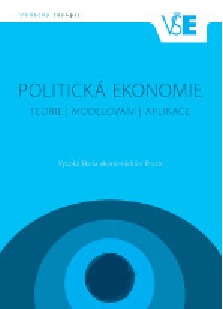Komparácia krajín EÚ na základe nástrojov sociálnej politiky na zmiernenie finančnej zraniteľnosti domácností
Comparison of EU Countries Based on Social Policy Instruments to Mitigate Financial Vulnerability of Households
Author(s): Nikola ŠubováSubject(s): Economy, National Economy, Sociology, Family and social welfare, Socio-Economic Research
Published by: Vysoká škola ekonomická v Praze
Keywords: Household; social policy; financial vulnerability; cluster analysis; principal components; factor models
Summary/Abstract: The social policy of the European Union is focused mainly on the most vulnerable group of citizens. The social instruments that countries use to increase the living conditions and to decrease social exclusion and vulnerability can differ between countries. The submitted paper uses cluster analysis to compare 27 member states of the European Union based on their social policy instruments in 2019. The study analyses the dependence of social policy instruments and household financial vulnerability using correlation and regression analysis. It examines whether higher levels of social benefits and government expenditure result in lower financial vulnerability. However, the results suggest that the financial vulnerability of households is not associated with low benefits. Clusters reporting a low level of benefits recorded a low financial vulnerability of households and vice versa. Results of the correlation and cluster analysis prove that the increase of the first factor (benefits in material need, expenditure on active labour market policy, family benefits, disability benefits) and the third factor (unemployment benefits) are associated with a decrease in financial vulnerability of households.
Journal: Politická ekonomie
- Issue Year: 71/2023
- Issue No: 1
- Page Range: 23-45
- Page Count: 22
- Language: English

